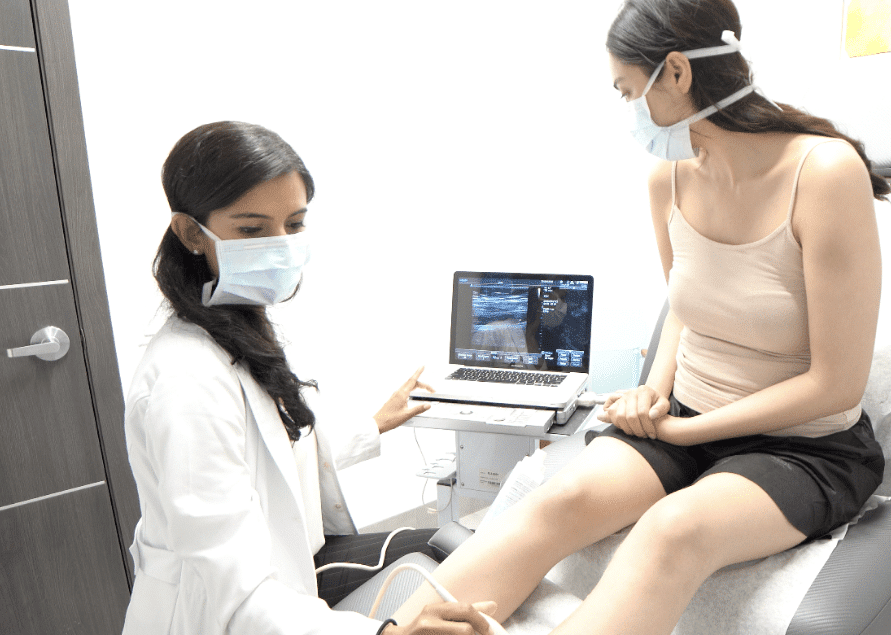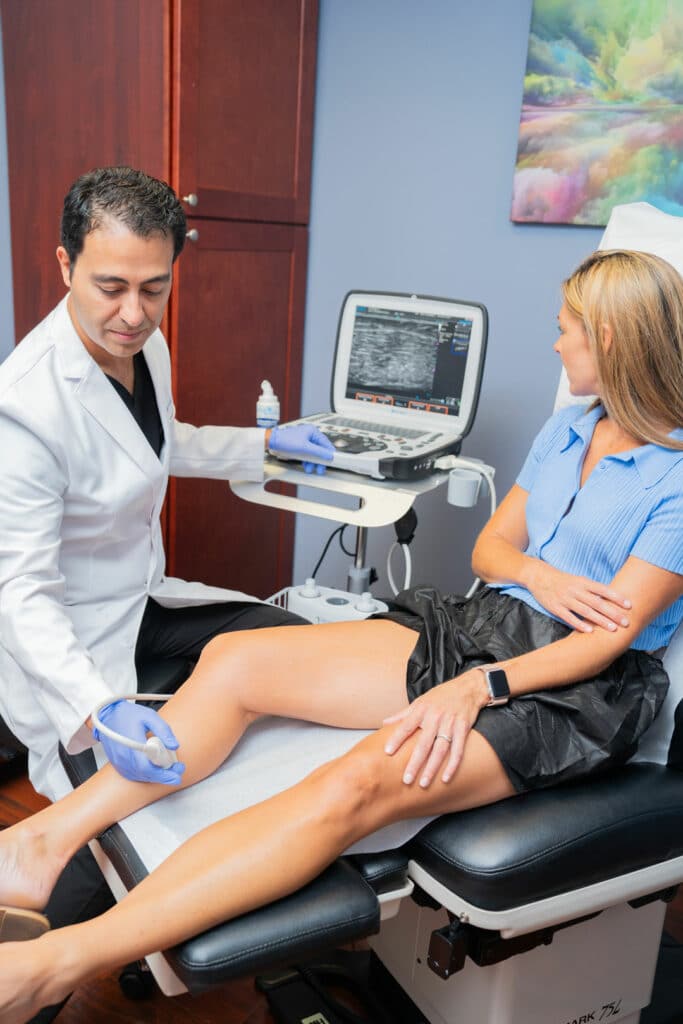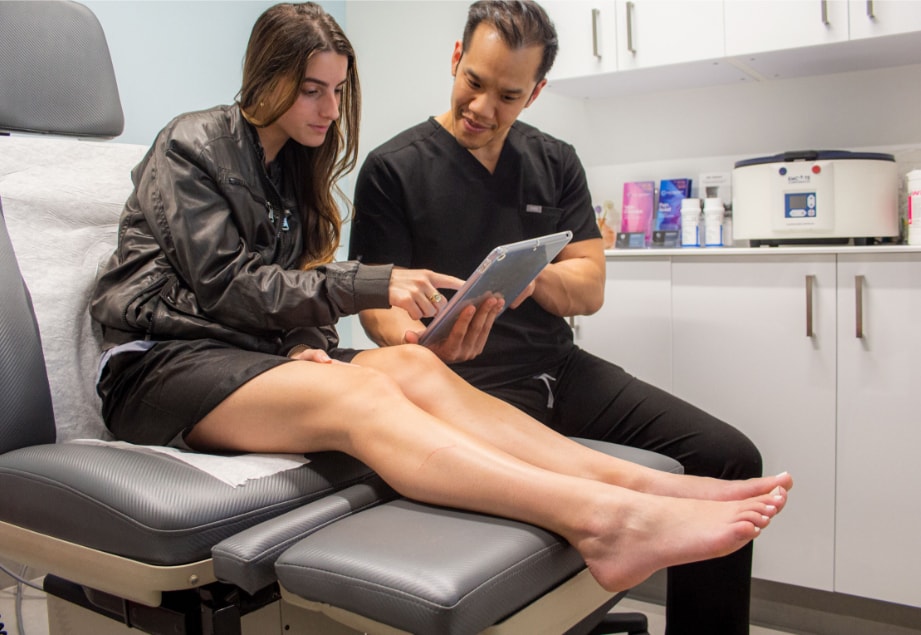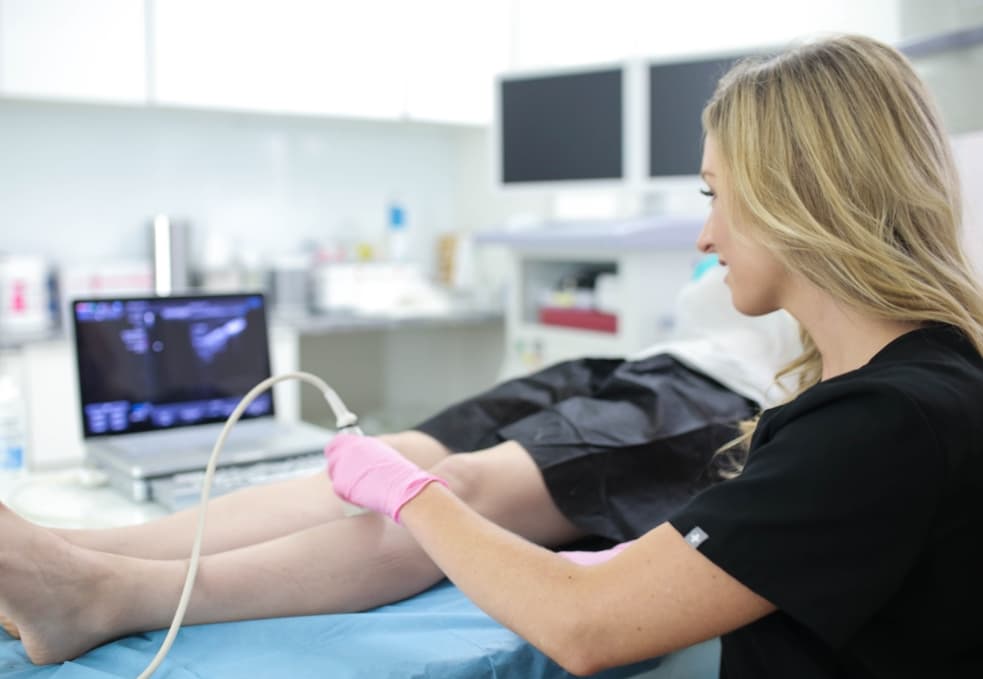What kind of doctor specializes in veins?
Having vein issues can be a very frustrating and uncomfortable experience. It is important to know the type of doctor who specializes in treating and diagnosing vein issues. A doctor specializing in veins is called a phlebologist, more colloquially known as a vein doctor, vein specialist, vein expert, or vascular specialist.
Phlebologists are medical doctors who specialize in diagnosing and treating venous diseases, such as varicose veins, spider veins, chronic venous insufficiency, and blood clots in the legs. Phlebologists are experts in different minimally invasive treatments for venous diseases, such as radiofrequency ablation, laser ablation, and ambulatory phlebectomy.
Phlebologists typically have a long history of experience and training in their field and have completed a residency program in vascular medicine or surgery. Additionally, it is typical that phlebologists will have additional specialized or advanced training in venous and lymphatic medicine and wound care.
Phlebologists are board-certified in their field and are typically members of the American Board of Venous and Lymphatic Medicine. This organization provides continuing education for vein doctors and sets standards for the safe and effective practice of vascular medicine. If you are experiencing any issues with your veins, contact board-certified vein doctors in Maryland.

How can I find the best vein center in Maryland?
If you’re in Maryland suffering from a vein disorder, you must find the best vein center. Vein disorders can range from minor to serious, and it’s important to find a vein center that offers quality care.
When finding the best vein center in Maryland, you should start by looking for expertly trained and experienced professionals. Maryland is home to numerous vein centers that employ state-of-the-art technologies and treatments. Make sure to read online reviews and ask for recommendations from friends and family to narrow down your options. Look for positive reviews that mention the vein center’s accessibility, quality of care, and professional bedside manner.
Finding a vein center that uses modern equipment and technologies is also important. Look for one that offers a comprehensive suite of diagnostic tools, including advanced ultrasound imaging, sclerotherapy, endovenous laser treatment, and radiofrequency ablation. Finally, don’t forget to ask about insurance coverage when selecting a vein center in Maryland. Many centers accept a variety of insurance plans and offer discounted services. This is important to consider if you’re worried about the cost.
Maryland Vein Center is a state-of-the-art vein center led by board-certified, Harvard-trained vein doctors in Maryland. Our vein center specializes in minimally invasive treatments to address the root cause of your vein problems. You can find our vein center at 10215 Fernwood Rd, Suite 301, Bethesda, Maryland, just outside Washington, DC. Please schedule an appointment at your nearest vein center in Maryland.
What can get rid of varicose veins?
Varicose veins are a common and often unsightly issue that many people face. For some, the issue can cause discomfort and can be very upsetting. Fortunately, you can take steps to reduce the appearance and severity of your varicose veins.
The most important thing to do is to make lifestyle changes that can significantly reduce the appearance of varicose veins. Exercise helps improve leg circulation and can make varicose veins less noticeable. While compression socks may not get rid of the veins completely, applying extra pressure to the veins can reduce swelling and make them less visible. Elevating your legs can also help reduce the prominence of varicose veins, and wearing loose clothing promotes circulation.
In addition to lifestyle changes, medical treatments can be used to get rid of varicose veins. Laser treatments, sclerotherapy, and radiofrequency ablation are all potential options. Laser ablation uses a focused beam of light to heat and seals off the problematic veins. Sclerotherapy is an injection of a solution that scar the veins and causes them to fade. Radiofrequency ablation involves using radiofrequency energy to heat the vein, causing it to collapse. All of these treatments can eliminate varicose veins.
Your vein doctor will carefully examine your leg veins, discuss your symptoms and goals, administer duplex ultrasound tests, and curate a personalized treatment plan.
When should I contact a doctor to remove varicose veins?
If you notice any changes in the color of your skin, such as discoloration, itching, burning, or pain, it is time to contact a vein doctor about your varicose veins. If the veins appear close to the skin’s surface and are raised or swollen, go ahead and make an appointment with a doctor. Other signs of varicose veins that may require treatment include aching in the affected area, a feeling of heaviness or fatigue, and visible or swollen veins.
If your varicose veins are causing discomfort, such as pain or itching, vein doctors may suggest compression stockings, which can reduce the size of the veins and keep them from enlarging. However, compression stockings can’t treat the root cause of varicose veins — they can only manage the symptoms and prevent the condition from worsening. Treatment for varicose veins usually involves minimally invasive procedures that close off the veins, such as radiofrequency ablation, endovenous laser ablation, and ambulatory phlebectomy.
If you are concerned about your varicose veins, it is important to consult with a vein doctor. Your vein doctor can assess your condition and suggest the best course of action.





